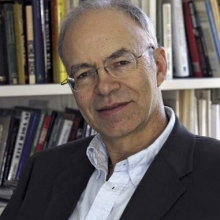Philosophy, Controversy, and the Importance of Free Speech
Peter Singer, the Australian ethical and political philosopher best known for his work in bioethics and his role as one of the intellectual founders of the modern animal rights movement, will discuss "Philosophy, Controversy, and the Importance of Free Speech" at Wellesley. In his words: "Traditionally, the champions of free speech came from the left, pushing for greater freedom of expression for progressive ideas that conservatives denounced as sedition or blasphemy, and sought to prohibit. Today, it is often those on the left who are seeking to narrow the range of views that can be heard, at universities and elsewhere. In this talk I will draw on my own experiences of being prevented from speaking. I shall restate John Stuart Mill's case for freedom of thought and expression, and consider whether this freedom should be limited in some respects."


SUGGESTED READING: "On Being Silenced in Germany," Peter Singer, The New York Review of Books, Aug 15, 1991